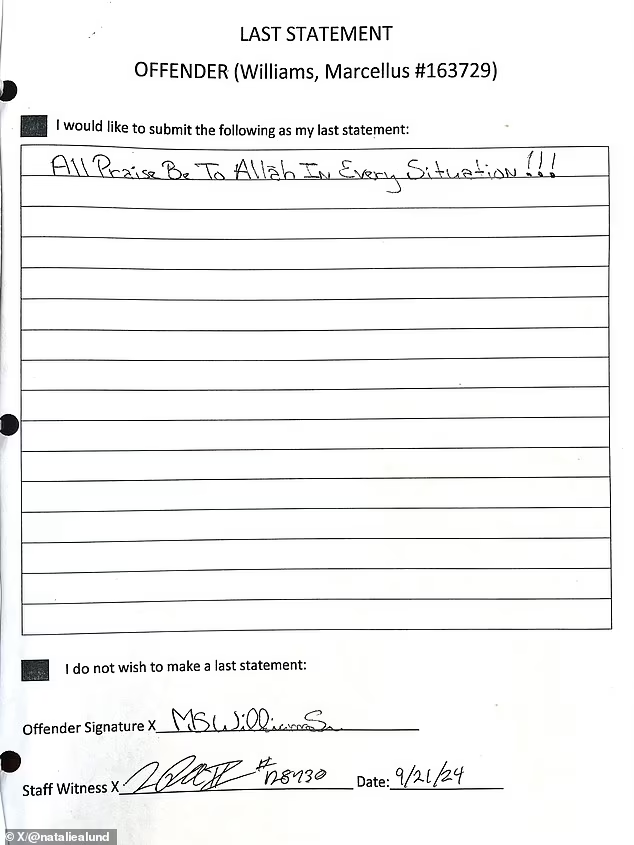Marcellus Williams, a 55-year-old death row inmate in Missouri, was executed Tuesday evening, with his final eight-word statement revealed as: “All Praise Be To Allah In Every Situation!!!”

Williams was pronounced dead at 6:10 p.m. at the Eastern Reception, Diagnostic and Correctional Center in Bonne Terre, following the administration of a fatal dose of pentobarbital. Witnesses reported that Williams, covered in a white sheet, moved slightly before his chest heaved about half a dozen times and then stopped.
Prior to the execution, Williams was served a final meal of chicken wings and tater tots. His son, attorneys, and Imam Jalahii Kacem were present for the execution, according to Karen Pojmann, a spokeswoman for the Missouri Department of Corrections.
Williams had been on death row since 2001 for the 1998 murder of Felicia “Lisha” Gayle, a former newspaper reporter. His case has been marked by years of legal challenges and lingering questions about his guilt.

Despite last-minute appeals and concerns raised by various organizations, including the NAACP and U.S. Representative Cori Bush, Governor Michael Parson allowed the execution to proceed. Parson stated, “Two decades of judicial proceedings and more than 15 judicial hearings upheld this guilty conviction; thus the order of execution has been carried out.”
The execution went forward even as recent legal efforts focused on allegations of racial bias in jury selection and concerns about DNA evidence. St. Louis County Prosecuting Attorney Wesley Bell had raised issues about the DNA evidence on the murder weapon, but new testing revealed contamination of the evidence.
The United States Supreme Court denied Williams’ final appeal just over an hour before the scheduled execution time. Defense attorney Tricia Rojo Bushnell criticized the decision, stating, “The execution of an innocent person is the most extreme manifestation of Missouri’s obsession with ‘finality’ over truth, justice and humanity at any cost.”
As Williams’ final words echo, his execution continues to fuel debate about the death penalty, racial bias in the justice system, and the handling of potentially exculpatory evidence in capital cases.



